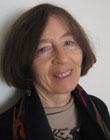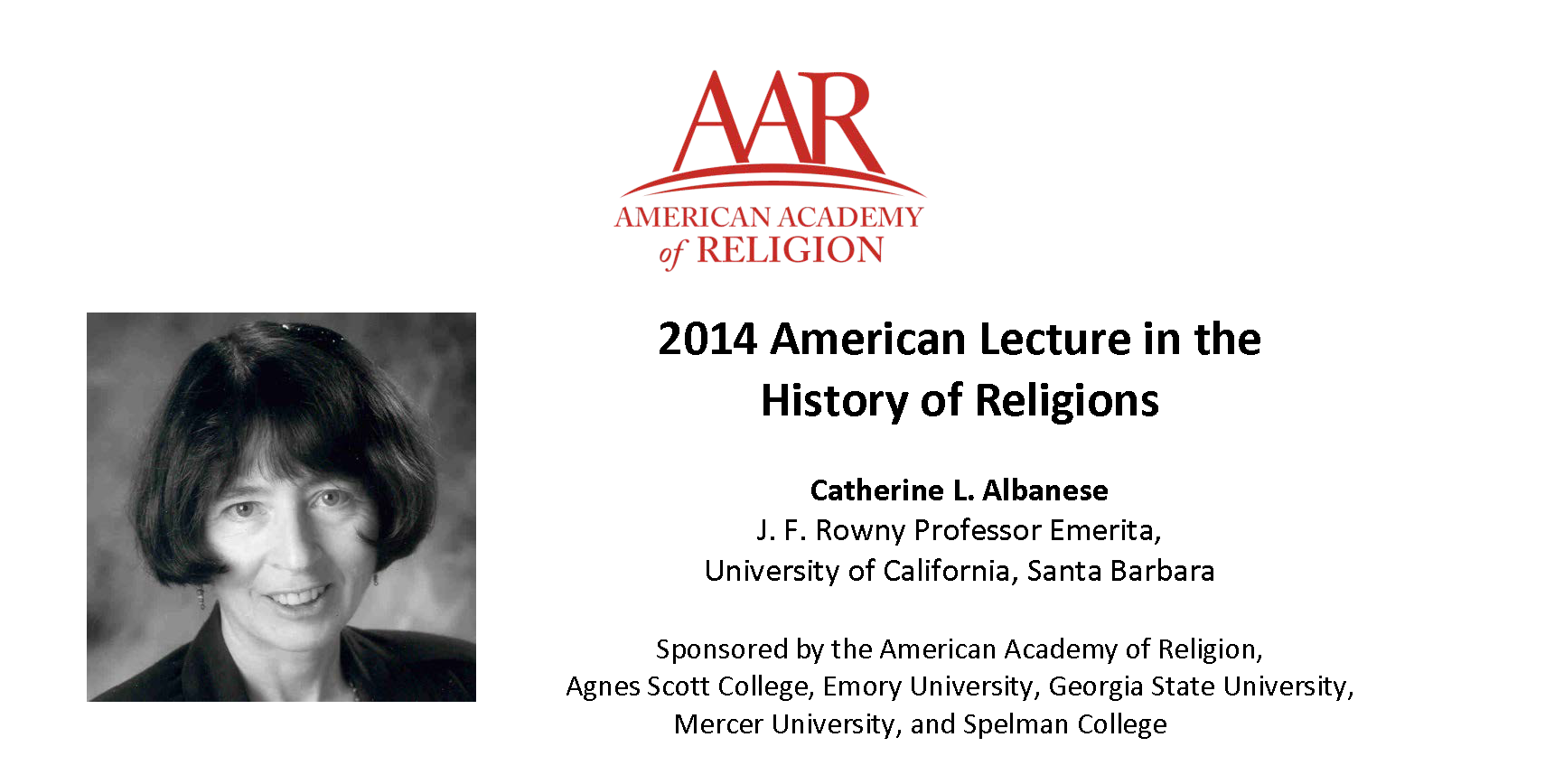Review of the 2014 American Lectures in the History of Religions
For the second year in a row, from April 7–11, 2014, the city of Atlanta hosted the American Lectures in the History of Religions. The lecturer this year was Professor Catherine L. Albanese, the J. F. Rowny Professor Emerita and Research Professor at the University of California, Santa Barbara. Professor Albanese served as the president of the American Academy of Religion in 1994.
 The title of the lecture course was In an American Kaleidoscope: Revisiting Two Centuries of American Religious History. Professor Albanese’s work has always been characterized by close attention to language and a lyrical style of writing; in this lecture course, she focused on the term "religious history." Professor Albanese observed that when she began her doctoral studies, the field in which she worked was commonly called "American church history," and it operated mainly by ticking off the Christian denominations: Puritans in New England, Quakers in Pennsylvania, some Catholics in Maryland; with nobody quite sure what was happening in Rhode Island. With the dawning realization that this left a lot of religious activity out of mind and therefore out of the textbooks, the name "American religious history" was intended to remind us that while Christianity is a religion, not all religions look or feel like Protestant Christianity. It is not an exaggeration to say that Professor Albanese’s entire professional life has been committed to scholarship designed to show us what that shift in vision, a turning of the kaleidoscope, may bring into view. We are now in a position to notice the religions of indigenous First Peoples, of West Africans both free and enslaved, of spiritualists, feminists, utopians, and the new religious movements that are such a prominent feature of the North American religious landscape today.
The title of the lecture course was In an American Kaleidoscope: Revisiting Two Centuries of American Religious History. Professor Albanese’s work has always been characterized by close attention to language and a lyrical style of writing; in this lecture course, she focused on the term "religious history." Professor Albanese observed that when she began her doctoral studies, the field in which she worked was commonly called "American church history," and it operated mainly by ticking off the Christian denominations: Puritans in New England, Quakers in Pennsylvania, some Catholics in Maryland; with nobody quite sure what was happening in Rhode Island. With the dawning realization that this left a lot of religious activity out of mind and therefore out of the textbooks, the name "American religious history" was intended to remind us that while Christianity is a religion, not all religions look or feel like Protestant Christianity. It is not an exaggeration to say that Professor Albanese’s entire professional life has been committed to scholarship designed to show us what that shift in vision, a turning of the kaleidoscope, may bring into view. We are now in a position to notice the religions of indigenous First Peoples, of West Africans both free and enslaved, of spiritualists, feminists, utopians, and the new religious movements that are such a prominent feature of the North American religious landscape today.
In a series of five lectures that moved respectively from Agnes Scott College, to Spelman College, to Mercer University, to Emory University and finally to Georgia State University, Professor Albanese took some of the standard chapter headings in American religious history and cast a glance at the margins in order to show us how what had been deemed marginal was actually central to the complex story of religion in the United States. Looking at the Great Awakening, a term that was not coined until more than century after the events it describes, Professor Albanese began with the central paradox of predestinarian theology: it would appear to leave nothing for human beings to do. By contrast, the new evangelism of prerevolutionary America left everything for human beings to do and, in this sense, created the revolutionary culture that would reverberate repeatedly through the next two centuries. During the American Revolution and its aftermath, Albanese traced the profound role played by Freemasons rather than Deism. In the first two generations of feminist ferment in the late nineteenth century, she traced the central role played by Spiritualists rather than rights revolutionaries. Finally, and with pointed irony, Professor Albanese suggested that the Mind Cure movements of the early twentieth century owed their development more to Evangelicals than to the Spiritualists.
Professor Albanese has plans to add eight more chapters to the five she presented in Atlanta for a forthcoming book that will be published with Columbia University Press.
The next ALHR will be held in Seattle/Vancouver in 2016.
Louis A. Ruprecht, Jr., Georgia State University
Chair, American Lectures in the History of Religions Committee
Founded in 1891 to encourage path-breaking scholarship through a lecture and book series, the American Lectures in the History of Religions flourished under the auspices of the American Council of Learned Societies and Columbia University from 1936. At the request of the ACLS, the American Academy of Religion assumed administrative responsibility for the series in 1994.






